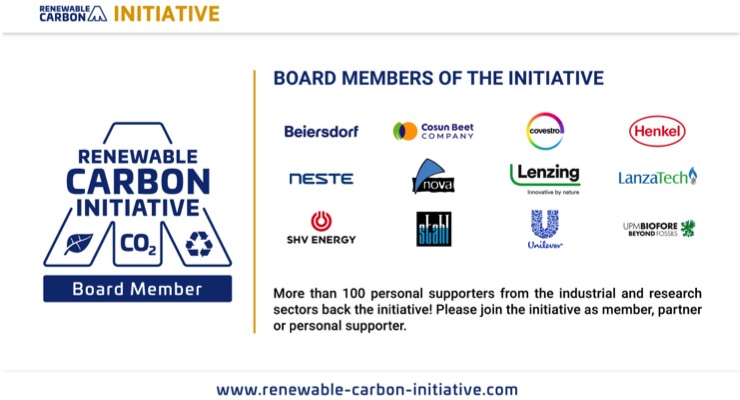Coatings World staff09.25.20
Stahl is one of the 11 leading companies that founded the Renewable Carbon Initiative (RCI) in September 2020 under the leadership of nova-Institute (Germany).
The aim of the initiative is to support and speed up the transition from fossil carbon to renewable carbon for all organic chemicals and materials. More than 100 well-known experts support the initiative personally.
Companies, start-ups and institutes are welcome to join the initiative as a member.
The first 11 pioneer companies to become a member of the RCI and form the Core Advisory Board are Beiersdorf (Germany), Cosun Beet Company (The Netherlands), Covestro (Germany), Henkel (Germany), LanzaTech (USA), Lenzing (Austria), NESTE (Finland), SHV Energy (The Netherlands), Stahl (The Netherlands), Unilever (UK) and UPM (Finland).
The Renewable Carbon Initiative (RCI) addresses the core problem of climate change, which is extracting and using additional fossil carbon from the ground.
The vision is stated clearly: By 2050, fossil carbon shall be completely substituted by renewable carbon, which focuses on accessing hydrocarbons from alternative sources: biomass, direct greenhouse gas utilization and plastic recycling.
The founders are convinced that this is the only way for waste greenhouse gases, plastics and available biomass to become sustainable, climate-friendly sources of hydrocarbons and serve as part of a more circular economy.
“At Stahl, we have an opportunity to dramatically improve our environmental impact and help our partners and customers achieve their sustainability goals," said Michael Costello, Stahl’s director of ESG and part of the Core Advisory Board of RCI. "We are changing the source of our raw materials. The Renewable Carbon Initiative is key to more sustainable chemistry. By establishing it as a strategic foundation of our business, we can succeed in reducing our own environmental impact and, more importantly, that of our customers too.”
The members of the RCI share and support this vision and will work together on this goal. The initiative will drive this message, initiating further actions by bringing stakeholders together, providing information and shaping policy to strive for a climate-neutral circular economy.
“This is about a fundamental change in the chemical industry. Just as the energy industry is being converted to renewable energies, so renewable carbon will become the new foundation of the future chemical and material industry. The initiative starts today and will be visibly present from now on. We want to accelerate the change," said Michael Carus, CEO of nova-Institute and head of the Renewable Carbon Initiative.
Over the next couple of weeks, the Renewable Carbon Initiative will publish more information on its aims and benefits via a wide range of social media activities.
This includes a website and social media presence, a poster, cartoons and video-clips to educate companies and end-users about sustainable options and support action.
The main avenues on which the initiative wants to deliver change are threefold.
One, the initiative strives to create cross-industry platforms that will demonstrate the feasibility of renewable carbon in tangible activities.
Two, a key target will be to advocate for legislation, taxation and regulation changes to give renewable carbon a level commercial playing field to play on.
Finally, the third avenue will be to create a wider pull for sustainable options by raising awareness and understanding of renewable carbon levels amongst the business community and the wider public.



























